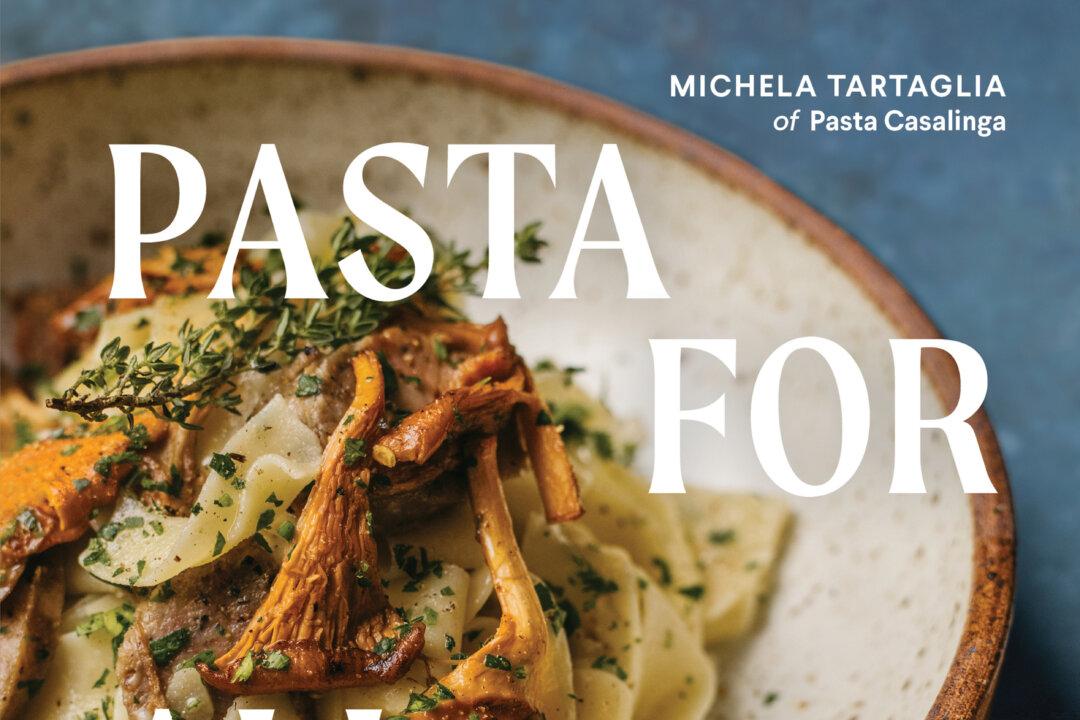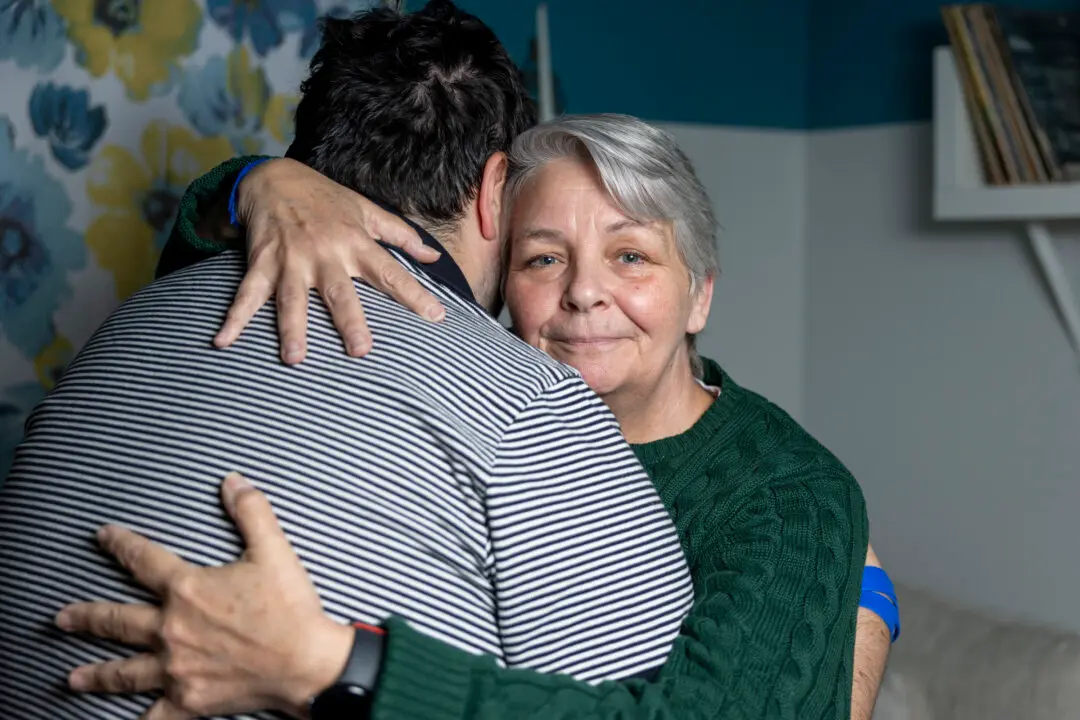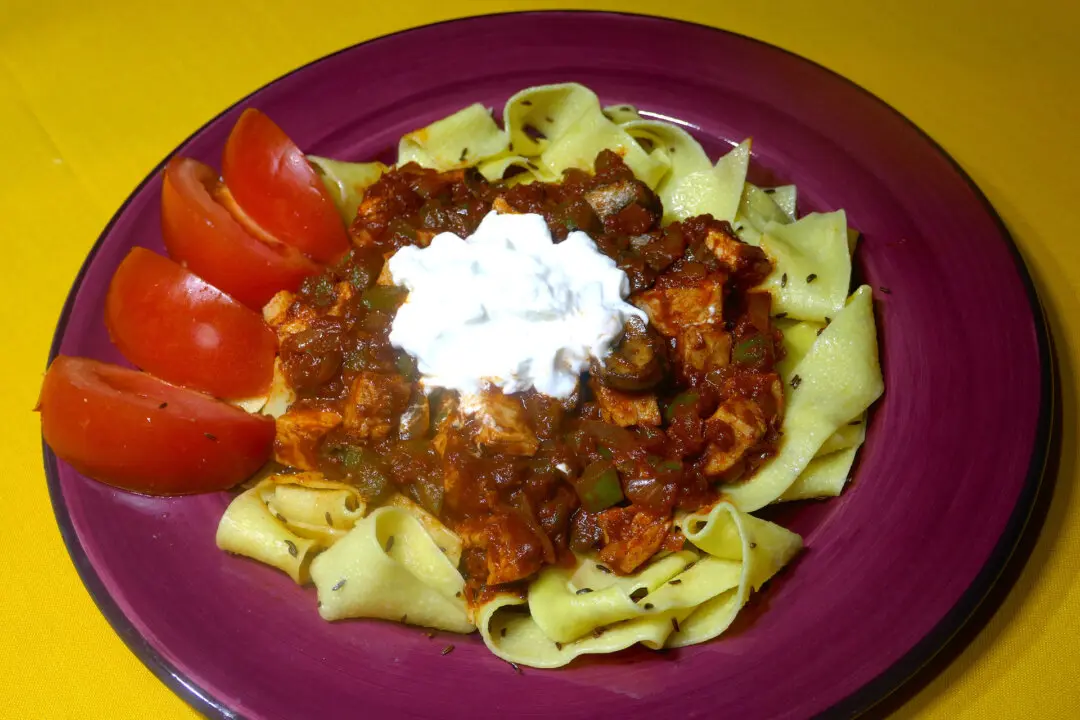Seattle—MIchela Tartaglia is the extremely charming proprietor of Pasta Casalinga in Seattle’s landmark Pike Place Market. There, in a tiny space that’s open on one side to the Market’s airy atrium, she and her staff purvey big plates of extremely good pasta, prepared with ingredients that change frequently according to what’s freshest, most newly seasonal and of the very greatest deliciousness. Decorated with hanging rolling pins, the counter-service spot embraces the tradition of Italian afternoons, with lunch to be lingered over, 11 a.m. until 4:45 p.m. every day — plus, of course, lovely Italian wines.
Tartaglia grew up in the countryside of Northern Italy, in the province of Turin, Piedmont, but her family had moved there from Southern Italy, giving her the kind of ecumenical pasta background that causes the rest of us intense envy. She came to Seattle for a year’s sabbatical upon the completion of her master’s degree in philosophy at the University of Bologna and, fortunately, here she remains 17 years later.
Pasta Casalinga just celebrated its fifth anniversary, having grown beloved far and wide—from neighbors in the Market to globe-trotting visitors, with lucky locals becoming regulars. Meantime, Tartaglia has written “Pasta for All Seasons” as a joyous exposition of her ethos, enabling the home cook to re-create dozens of her “Dishes That Celebrate the Flavors of Italy and the Bounty of the Pacific Northwest.” The book also helpfully includes a “Pasta Primer” and a roster of some of Tartaglia’s favorite Washington purveyors, with local food heroes such as Alvarez Organic Farms, Foraged & Found Edibles, Hama Hama Oyster Company and Shepherd’s Grain named.
Tartaglia sat down at the end of the Pasta Casalinga day with glasses of splendid 2020 Marchesi Di Gresy Langhe sauvignon to talk about the book, pasta and a little life philosophy. Here, she also shares a pasta preparation that celebrates one of the Pacific Northwest’s treasured marvels of spring: morel mushrooms.
On her first memory of pasta: My mom was not feeling well. And I think I was like 7 years old. So I wanted to surprise her, and I went to the kitchen and I cooked pasta. And then, you know, in Italy, people still make their own sauce, but also you need to process it with a little garlic, olive oil ... But in my mind, it was already made. So I open it, and I put it with pasta, and I serve—it was basically like, I’m not saying ketchup, but ... My mom, she cried, because she thought it was so sweet. But she was like, in the typical Italian way: “Clearly, you’re not watching me when I’m in the kitchen!” [she laughs]
On her Italian grandmothers’ cooking: I will not say that one was better than the other one. Their diets, and the way they cooked anything was—I have goose bumps when I talk about it, for real. It was the kind of cuisine that was very simple, mainly vegetarian ... back in the time, they had animals they used to sell at the market, so they used to kill one pig for Christmas and divide it and keep it all year long, putting, occasionally, a little piece into the sauce, just to give a little bit of flavor. So a cuisine based on starch, vegetables—the best vegetables, obviously organic; there was no option, they didn’t even have chemicals back in the time. And tasty—just tasty. Both of them, just fantastic—the olive oil, the spiciness, everything, but also mild at the same time ... just very round, very, very balanced.
On the impetus behind “Pasta for All Seasons”: It was a pretty organic project that came along with Pasta Casalinga. Everybody really wanted to have the recipes of a certain dish ... Eventually, it was going to happen. And it also was a challenge for me, in a way of finally having things written down—because in the classic Italian style of the rustic place, my recipes [have] always been very loose, and I’m driving everybody crazy [she laughs]. And I think it’s something that everybody dreams about, publishing a book.
On the impetus behind moving to Seattle: I had never been to the United States before, so I had a hard time to choose where. I knew it was going to be the coast—either East Coast or West Coast. But I got really inspired by all these [friends’ Seattle] stories. The description was: It’s a city, but not overwhelming like a city; it’s all this subculture, and, of course, the most beautiful mountains, and the water ... It was really jumping off the cliff [to come here], and I landed in November. I remember crying for the first week, because day one: fine. Day two: OK. And then, [at] one week, it’s like, “What’s going on?!” I knew about the rain, but I didn’t understand it was so brutal. But I’m going to United States, and I’m going to improve my English—that was the plan. During this year’s sabbatical, I realized that I didn’t want to go back to Italy—I wanted to continue to explore.
On the impetus behind Pasta Casalinga: So I was living at the Diller Hotel [apartments, near Pike Place Market]. And then I started a cooking school in my place—I put a sandwich board on First and University, and people are coming up and doing the pasta classes. Then the kitchen downstairs [from Pasta Casalinga]—a shared space—I was the first one to rent it out. Because my oldest daughter used to go to the preschool in Pike Place Market, [I used to] walk, dropping the child, coming here, doing classes. But I always really wanted to do the Italian approach with all the fantastic ingredients that we have in the Pacific Northwest—I mean, you just have so much. It’s crazy. Like, it’s overwhelming.
On the ethos of the book: “Pasta for All Seasons” is a cookbook about pasta, but really the protagonist are the ingredients. Some ingredients are intimidating for some people ... When people go out and eat nettles, they love it. But to make them—“What am I going to do with the nettles? How am I going to process them?”—it’s easy. So it’s like: Push yourself a little bit, to sea urchin, to fiddleheads.
On the best thing about pasta: It’s never boring. Like music—imagine to listen to the same song, over and over. You change it, you change genre, you change ... And I think pasta’s the same.
On how philosophy and pasta intersect: I think the study of philosophy connects with pasta, with food, with my life—with the way I restarted, changed direction, readjusted, handling things. [It] opened my mind and give me a lot of perspective. And give me the ability of standing up after I fell down. Like—you know—sometimes we do in life.
On what philosopher she thinks of when she thinks of pasta: Maybe Schopenhauer ... yes, probably him.
This interview has been edited for clarity.
Pipe With Pacific Northwest Morels, Pancetta, Walnuts, Ricotta And Saffron (Pipe Con Spugnole, Pancetta, Noci, Ricotta E Zafferano)
Makes 4 servings
One of the most foraged (and desirable) items in the PNW, morels can be found from mid-April until June in the woods of the Olympic Peninsula, the Okanogan-Wenatchee National Forest, the San Juan Islands and a host of other secret spots ... [This] is a seasonal, luscious pasta dish that showcases the morel mushrooms with their nutty and earthy flavor and is perfectly balanced with the other ingredients.—Michela Tartaglia
Ingredients






